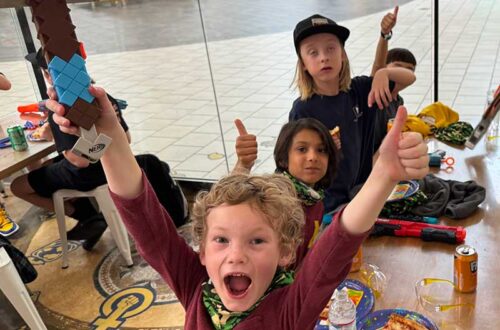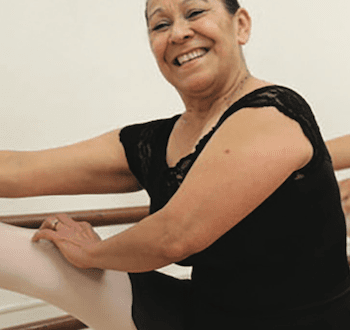
Anti-racism Resources for Parents
BY NICOLE M. YOUNG, MSW
 I am a woman of color, raised in a White family, mother of two bi-racial children. I’ve experienced racial ignorance, microaggressions (words and actions that seem trivial, but are hurtful because they’re based on stereotypes), prejudice, and racism in my personal and professional life – even in my own family.
I am a woman of color, raised in a White family, mother of two bi-racial children. I’ve experienced racial ignorance, microaggressions (words and actions that seem trivial, but are hurtful because they’re based on stereotypes), prejudice, and racism in my personal and professional life – even in my own family.
But I am not Black, and I can’t even pretend to know what it’s like to live in fear that doing everyday things like jogging (Ahmaud Arbery), sleeping at home (Breonna Taylor), driving (Sandra Bland), watching birds (Christian Cooper), or waiting for a friend at Starbucks (Rashon Nelson and Donte Robinson) could put my life or my children’s lives in danger.
I’ve talked with my kids many times about making safe choices, and how racism has shaped our society’s values and laws, resulting in different opportunities for White people compared to people of color. We’ve talked about the stereotypes and prejudice they’re likely to encounter because they’re Asian, as well as the automatic advantages (privileges) they have because they’re also White.
But I am not Black, and I can’t even pretend to know what it’s like to have “the talk” with my son and daughter about how to stay alive when they go about their daily business or interact with law enforcement—or why yet another person who looks like their father, grandfather, uncle, brother, or themselves has been killed without reason (George Floyd).
I grieve for all Black mothers and fathers who have grieved the unjust deaths of their Black children, young and grown. I hope that by the time this article is published, the national grief and outrage over the fatal effects of systemic racism have not subsided, but have gained momentum, fueling an unstoppable movement to end centuries of injustice.
Many parents are wondering what they can do in their families and communities to create a safe, just society. This month’s article offers a few parenting tips and resources in response to the common question, “What can I do?”
Learn about race, racism, and racial oppression in our country. Make this a lifelong habit because there’s always more to learn or understand more deeply. This is true regardless of what race you identify with, whether you’ve never thought about your own racial identity, or you’ve studied racism all your life. Healthline Parenthood has a comprehensive list of anti-racism resources for parents and kids: tinyurl.com/HP-Anti-Racism-Resources.
Listen to the voices of people with direct and diverse experiences. As you choose what information to pay attention to, try to expose yourself to diverse perspectives. It’s important to learn about different cultural beliefs, values, and strengths, as well as everyday impacts of racism, directly from people of color who have lived those experiences. If you’re not sure where to start, read Common Sense Media’s suggestions about “How White Parents Can Use Media to Raise Anti-Racist Kids” (tinyurl.com/Media-Anti-Racist-Kids), which suggests some Black and brown people and media outlets to follow. Then branch out from there. It’s also important to learn about what it means to be anti-racist from other White parents. Not sure where to start? Check out Rebekah Gienapp’s web site for conversation starters and guides (rebekahgienapp.com/).
Talk with children and teens about race and the impacts of racism. Many adults avoid talking about race or racism with children because they don’t feel knowledgeable, or they worry that acknowledging race-based differences will perpetuate racism. In reality, the opposite is true. When parents avoid talking about race or adopt a colorblind approach (“I don’t see color.”), they’re missing an important opportunity to help children identify and understand the harmful effects of racial stereotypes, assumptions, biases (preferences), and social norms or “rules” that exist everywhere. Start these discussions at an early age and make them a regular part of your family’s discussions so that kids learn to value diversity and be anti-racist. Some helpful resources include videos from Sesame Street and CNN’s town hall on racism (tinyurl.com/TownHall-Racism) and The National Museum of African American History & Culture’s library of tools and guides for talking with kids about race (nmaahc.si.edu/learn/talking-about-race).
FINAL THOUGHTS
Martin Luther King Jr. said, “Our lives begin to end the day we become silent about things that matter.” Parents: let’s use our voices to denounce racism in all its forms and raise the next generation of changemakers.
This monthly article provides tips for families raising children, based on the world-renowned Triple P – Positive Parenting Program, available to families in Santa Cruz County. If you have a question or idea for a future column, please email triplep@first5scc.org.
Nicole Young is the mother of two children, ages 16 and 20, who also manages Santa Cruz County’s Triple P – Positive Parenting Program, the world’s leading positive parenting program. Scientifically proven, Triple P is made available locally by First 5 Santa Cruz County, the Santa Cruz County Health Services Agency (Mental Health Services Act) and the Santa Cruz County Human Services Department. To find a Triple P parenting class or practitioner, visit triplep.first5scc.org, www.facebook.com/triplepscc or contact First 5 Santa Cruz County at 465-2217 or triplep@first5scc.org.


You May Also Like

College Application Tips
September 30, 2021
Birthday Battle Royale at the Children’s Museum
March 3, 2024


